We kindly inform you that, as long as the subject affiliation of our 300.000+ articles is in progress, you might get unsufficient or no results on your third level or second level search. In this case, please broaden your search criteria.
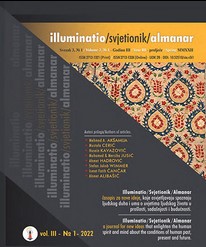
The 'DOBRE VODE' ('GOOD WATERS') complex is located in the municipality of Foca (Geographical coordinates: 43º35'12.91''N, 18º39'34.56''E, elevation: 1043). It is about 13 km from Foča, about 28 km from Goražde, and about 40 km from Sarajevo (by air). The nearest villages to this locality are Kolun and Zarudine. The theme 'WATER' is present in a large capacity in the daily life of people in Bosnia and Herzegovina. Its meaning in the 'philosophical-religious sense' is particularly specific, where it has a sacred-symbolic meaning, as the 'source of life'. In this paper, one geographical area is presented – 'Place of outdoor prayer Dobre Vode' ('Dovište Dobre Vode'), with the status of 'sacred place'. The aim of this paper is to promote the meaning and role of water in people's daily lives, but also as a fundamental resource for life on planet Earth. The topics are elaborated according to the scientific methodology that is covered in the author's book: Hadrovic, A. (2007). Defining Architectural Space on the Model of the Oriental Style CityHouse in Bosnia and Herzegovina, Serbia, Montenegro, Kosovo and Macedonia, Booksurge, LLC, North Charleston, SC, USA.
More...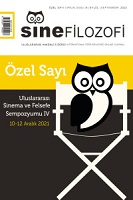
The Egyptian public, who regulate their lives depending on the annual floods in the Nile River and have a river culture, built their water and land-centered lives after each flood and enlarged the possibilities of the land when the coastline of the Nile River turned into a fertile and mud-covered land. In the Simindis Kundzuli (Corn Island, George Ovashvili, 2014) which sets on an island in the middle of the Enguri River, the islets formed after the river overflows turn into fertile land for the agricultural activities of the farmers. In this bringing forth in nature, the possibilities of the land and the island are realized by turning into an activity without damming them up. This non-challenging attitude towards nature corresponds to the hidden side of nature that Heidegger mentioned in Being and Time, and the concept of nature, which is the subject of poiēsis in The Question Concerning Technology. In this sense, Heidegger, with reference to the ground of hiddenness in The Question Concerning Technology, discussed the poetic aspect of the ontological attitude towards nature in the context of physis and tekhnē. The distinction between the way of revealing of Being as singularity of beings and the bringing forth of nature as a raw material store in The Question Concerning Technology enables phenomenology to be considered in an ecological manner. In this context, the understanding of nature in Corn Island will be associated with surrender to it rather than being dominating, and its relationship with ecophenomenology will be evaluated. As a matter of fact, in the last sequence of the film, the overflows in the river cannot be prevented and the shed and the corncobs are dragged by the waters of the river. This indicates that the river is not seen as a raw material store.
More...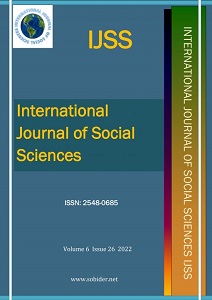
This study includes the functioning of the solid waste management system in our country and recommendations on what needs to be done for this. In the current period, city administrators tend to carry out the application of modern and traditional orientations together in solving problems. In this sense, city administrators stand out in terms of having much more humane, participatory, democratic options. This brings together a situation that strengthens the hand of city administrators. The issues of collecting, transporting and disposing of hazardous and toxic waste, that is, waste that is both liquid and solid, that are of close concern to local authorities about waste problems and that have come to the agenda in recent times are the issues of collection, transportation and disposal. Some of the hazardous and toxic waste is from flammable substances such as solvents used for chemical purposes in the chemical industry. These create fire hazards where they are located. Some of them have explosive properties. Naturally, when they come into contact with different chemicals, they create gases full of danger and poison. In some of them, that is, in those that differ in different ways, they carry agents that cause diseases in living beings, that is, bacteria, viruses, parasites, cysts, etc.
More...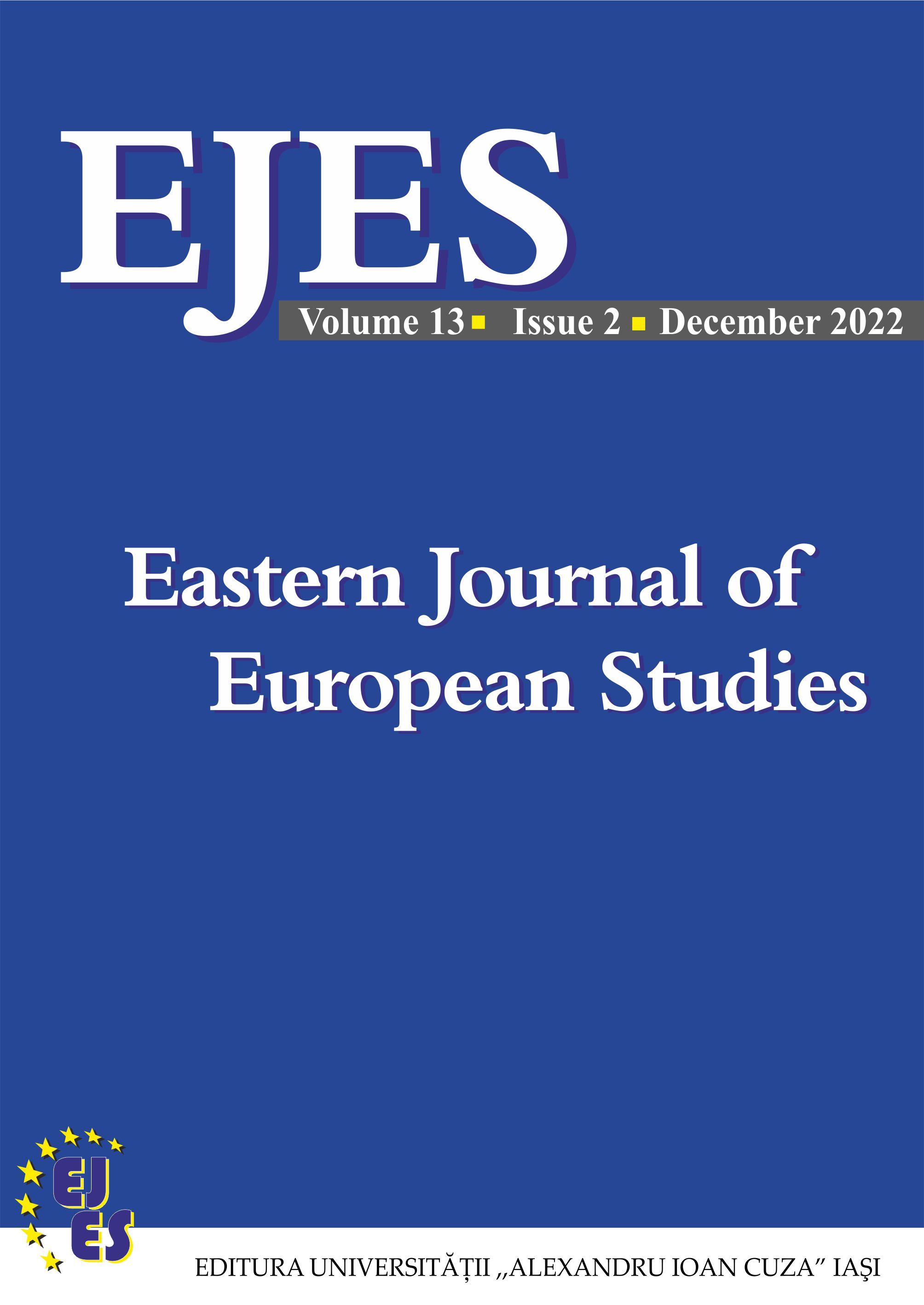
The European Union (EU) is considered to be a norm-setter in building resilience and aid delivery, acting as a transformative actor in the international development arena (both modus vivendi and modus operandi). As development and resilience can improve the quality of life and well-being in different environments at the global level, it is important to replace disruption and societal vulnerability with effective cooperation mechanisms. Hence, the central aim of this paper is to examine to what extent the motivation to provide aid will place the EU in a favourable position of a norm-maker or, a contrario, as a norm-taker. In this context, this study will also focus on the EU's ambition to move forward with a vision for development as well as with a coherent policy for aid-delivery for less developed countries.
More...
One of the important instruments of the industrial and infrastructural policy of the state is the formation of a national system of innovation clusters. Sustainable development can be achieved by creating network structures based on a cluster approach, as such associations include enterprises, research institutions, research centres, government agencies, and financial and consulting structures. The article aims to determine the relationship between the level of cluster development and the level of sustainable growth to formulate recommendations for policies to increase the competitiveness of European economies. This study used a linear correlation between the State of cluster development and the SDG Index, taken from two reports: The Global Competitiveness Report 2019 and Sustainable Development Report 2019. The results of the study confirmed a significant relationship between factors and outcome. Thus, the research hypothesis was proved, which was that there is a high positive correlation between cluster development and sustainable national growth; EU countries with well-developed clusters are countries with high sustainable development and vice versa.
More...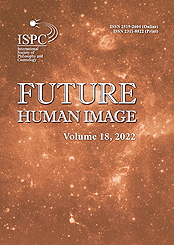
Training of citizens with a high level of environmental awareness, eco-consciousness and sustainable culture on the basis of new informed criteria for assessing the relationship between human society and nature should become one of the main instruments in solving extremely acute environmental and related socio-economic problems. Environmental education, as a holistic cultural phenomenon that includes the processes of inculcated education and (most importantly) personality development, should be aimed at the formation of ecological culture as a crucial component of the system of national and public education of all strata of the global population. In particular, within our educational system emphasis should be put on imparting through environmental education with the help of public environmental organizations by updating and making our academic disciplines, training programs, and approaches greener, more sustainable as well as making sure they provide professional environmental training through basic environmental education. Solving these pressing issues should ensure the formation of integral ecological knowledge and thinking platform within our educational institutions, necessary for the adoption of environmentally sound national and global decisions at all levels of the socio-political entities, groups, spheres of influence and activity fostering and facilitating thereby an in-depth mastery and understanding of ecological knowledge and agenda, furthering the formation and development of ecological thinking, consciousness and culture among students as well as the general population. With the presently looming threat of an environmental catastrophe, the authors are convinced that only a balanced, ecologically safe harmonious and sustainable program of action is our way out and should be the basic idea, forming and informing the methodological crux of environmental education in accordance with international policies, standards and practices.
More...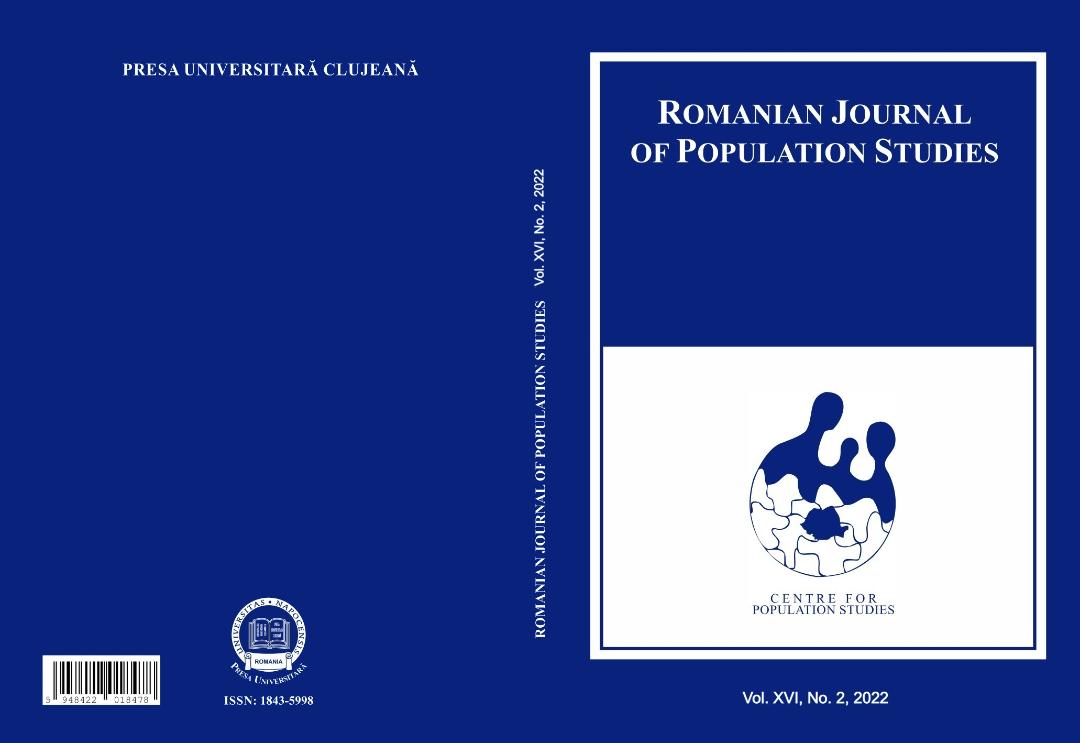
This study documents the recent mortality patterns of Romanian population between 2000 and 2015. Despite the increasing life expectancy at birth, Romania is still witnessing one of the highest infant death rates and tuberculosis death rates in the EU. Based on the internationally available World Health Organization mortality database, this study focuses on three aspects of mortality data: infant mortality, adult mortality, and causes of death, using age-specific decompositions and multiple-decrement life tables. Results show disparities among age groups by sex in a fifteen-year period. The infant mortality and tuberculosis mortality have decreased significantly, yet tuberculosis remains a major death cause among young population. Mortality rates attributable to behavioural factors have been increasing. Moreover, there is an unusually high mortality rate among the 1986-1990 cohorts. These findings shed light on the health conditions in Romania before and after its accession to the European Union
More...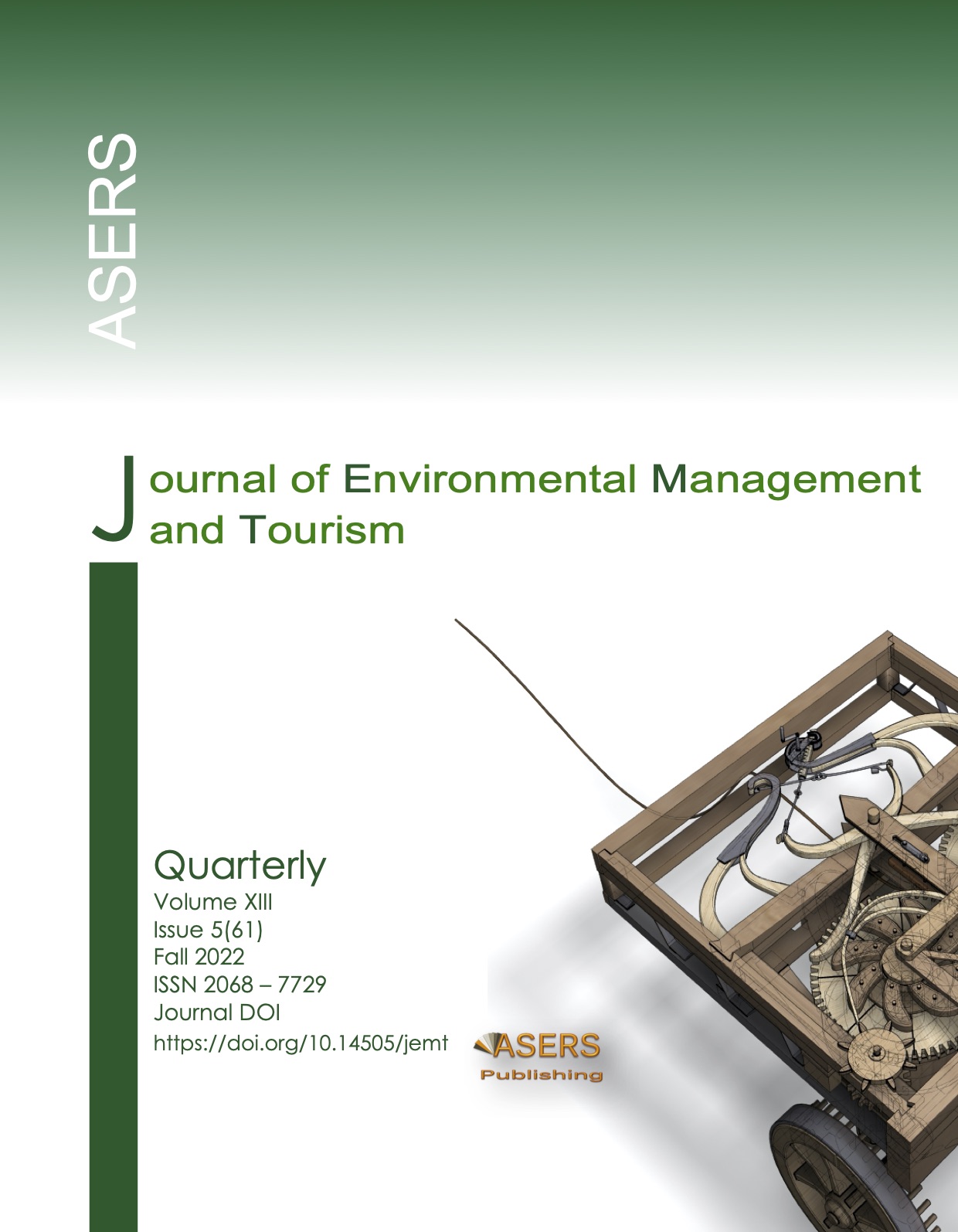
The article aims to develop methodological approaches to assessing the environmental security of territories, identifying the regions most affected by hostilities, and substantiating the strengths of strengthening during the war. Methodical courses are offered, and the corresponding express analysis of the balance of economic, social development and ecological safety of regions of Ukraine based on the related indicators is carried out. The results on a ten-point scale characterizing the standardized deviations of the above indicators from the median value by region showed significant imbalances in achieving the vectors of sustainable development. That is, implementing one or two vectors is currently carried out by neglecting others, which confirms the urgent need to find mechanisms for their effective balancing. It is determined that during the war in Ukraine, the strategic task of the state was to develop guidelines for strengthening environmental security due to significant destruction of infrastructure and ecosystem damage. Among the main strategic approaches for strengthening are identified: identification of settlements and areas in need of humanitarian demining, marking of dangerous sites, cleaning (demining) of territories, involvement in the elimination of the consequences of hostilities and emergencies of international aid, and others.
More...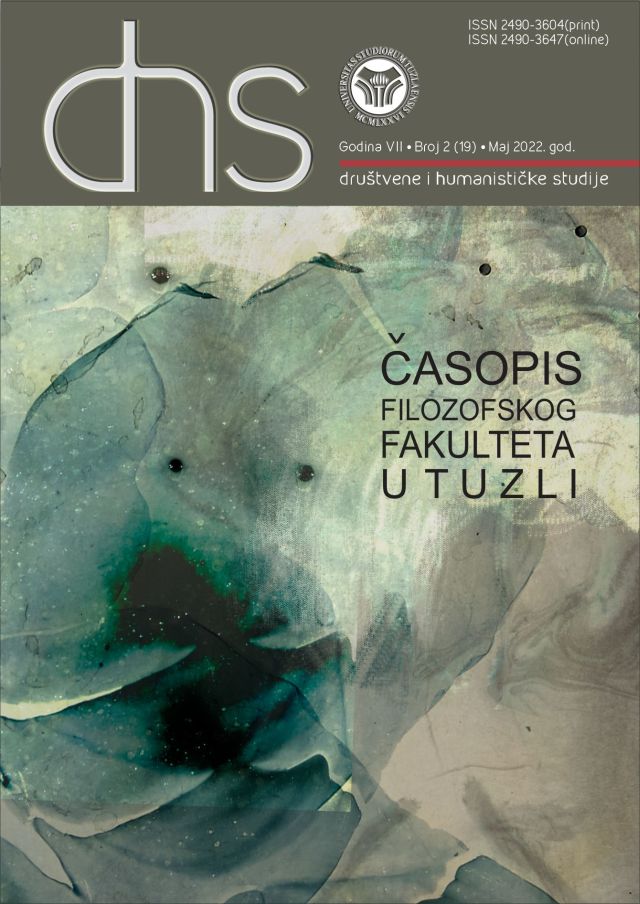
Review of: Anke Schwittay, Creative Universities: Reimagining Education for Global Challenges and Alternative Futures, Bristol University Press, Bristol, 2021.
More...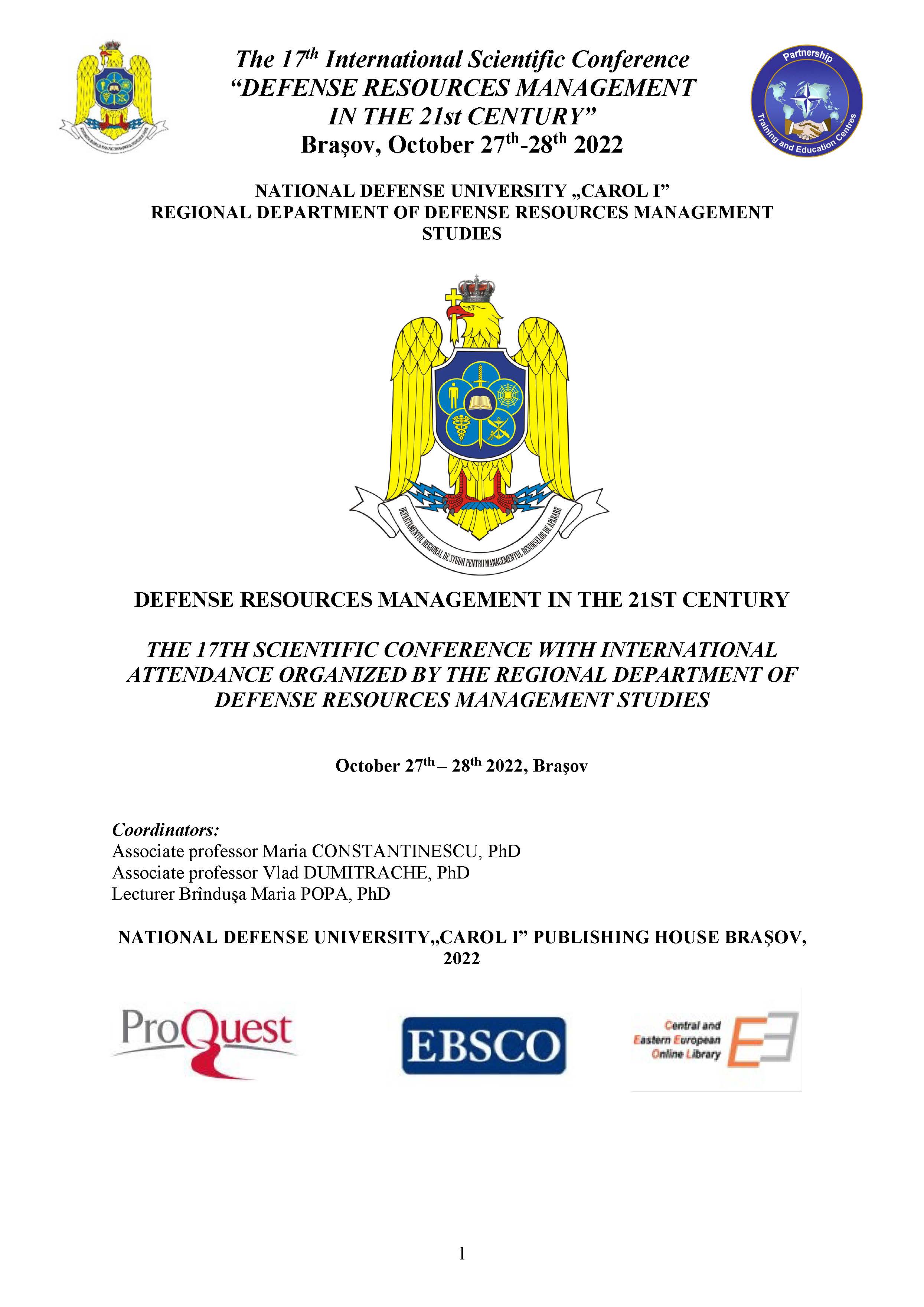
It is already a proven fact that companies play a major role in shaping the modern world, overall companies have proven a great experience in dealing with a fast-paced world that is in constant change. The unique experience, competitive nature and adaptability can and have provided proof that private companies can and should become more involved in plans to build community resilience. We all know that crises and disasters inflict perturbations on human society and its development and in many years it takes years, even decades to mend the effects on a societal level, while entire lives, hopes, and dreams get lost forever. Corporations play a major role in shaping our world through the economic, social, technological, and behavioral impact that they have on those who are touched either directly by their products and services or indirectly by the social and economic changes those products and services bring about.
More...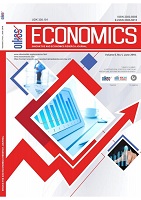
This article analyses the current environmental aspects and the mechanisms of environmental tourism. The study showed that the environmental situation in Pavlodar Region requires the adoption of a number of activities and legal regulation for improvement and development of tourism. The improvement of tourism is very important for the regional budget and for the development of the tourism industry, the existing taxation system that is the Tax Code of the Republic of Kazakhstan requires some amendments, sustainable development measures should put into the practice with the introduction of technological systems that based upon the use solar and wind energy, and “Green Economy” strategy should be implemented into the practical life and monitored effectively.
More...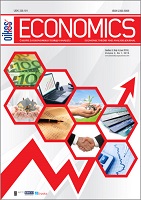
Culture and globalization are intertwined and mutually conditioned not only due to the common culture interaction, but also primarily because of technological transfers shaping the global economy. The entire social development is thus adapted to various cultures and to culture in general. Perceived from one perspective, the market and globalization affect the culture in a negative manner. As a set of permanent material and immaterial values and human creations, culture, as such, is exposed to a multitude of problem, countercultural and degrading processes stemming from conflicts of interest and, sometimes, from very rapid changes and uncritically accepted innovations, forms and standards. In that sense, degradation of culture can cause deterioration of the quality of economic activity. Environmental culture and sustainability culture are only a part of a relatively new business culture and behaviour. In fact, ecological behaviour and “green intelligence” are typical human characteristics, and are a part of the universal human culture, as well as of a sustainable relationship with nature and with future generations. In spite of common understanding and prejudice, most research shows that globalization and market development have a positive net effect on environmental culture and sustainable development. Humanity is experiencing a chance to utilize such positive permeation and to impose the culture of globalization as a stimulating factor for sustainable development.
More...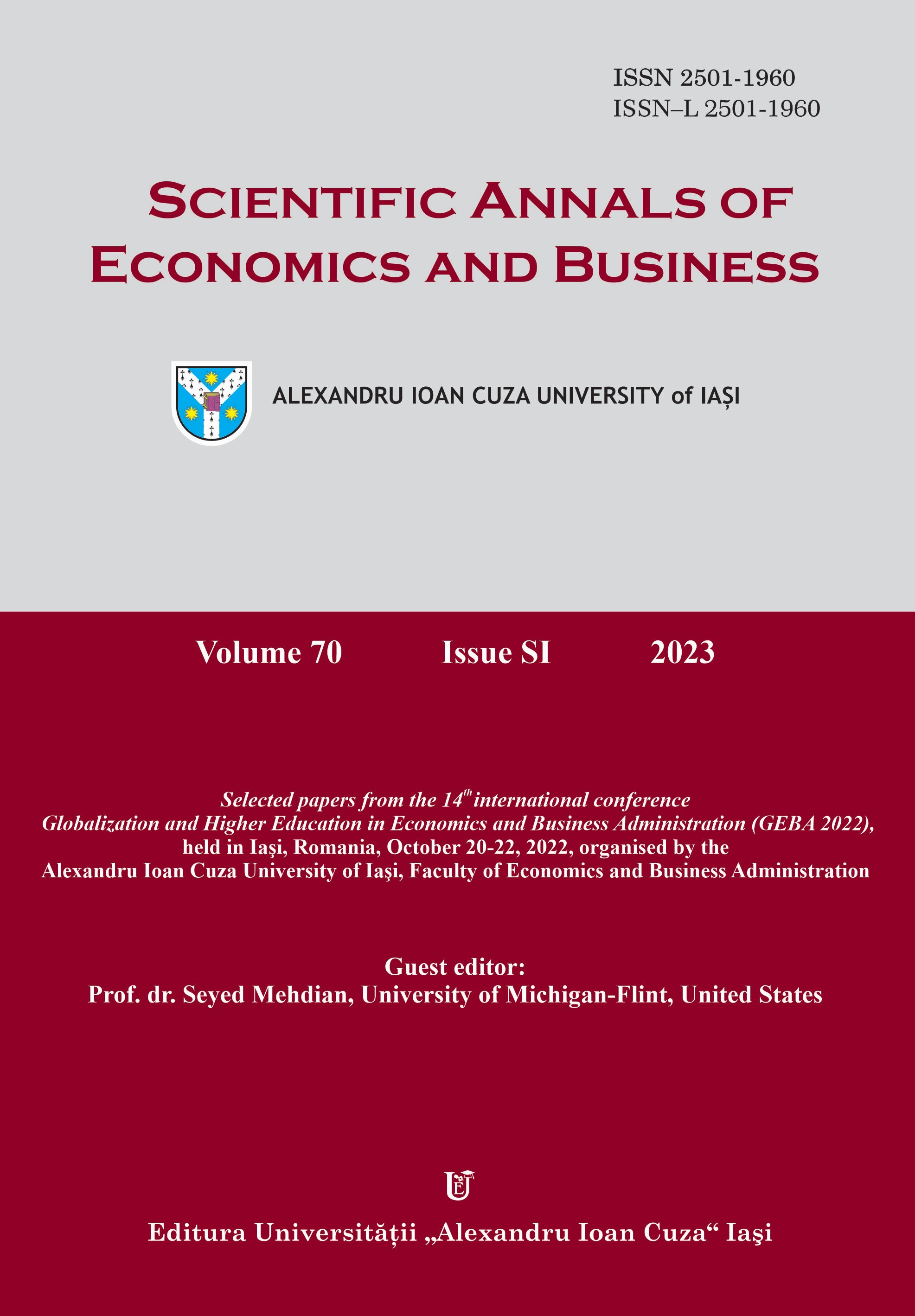
Organizational sustainability efforts focus on three main areas: people, profit, and the environment (Elkington, 1998). With an increasing emphasis on sustainable development, economic entities are concerned with achieving long-term performance, the capacity to create value and to meet the needs of interest groups (investors, employees, customers, communities, local development), but also on the development, promotion and implementation of concrete actions for environmental protection. This study aims to identify the current stage of the relationship between sustainable development and financial performance, in order to identify key elements, trends and research gaps. Based on these considerations, we performed a quantitative analysis of a sample of 62 articles from 3 databases (ScienceDirect, Scopus and Web of Science), which we subsequently studied qualitatively.
More...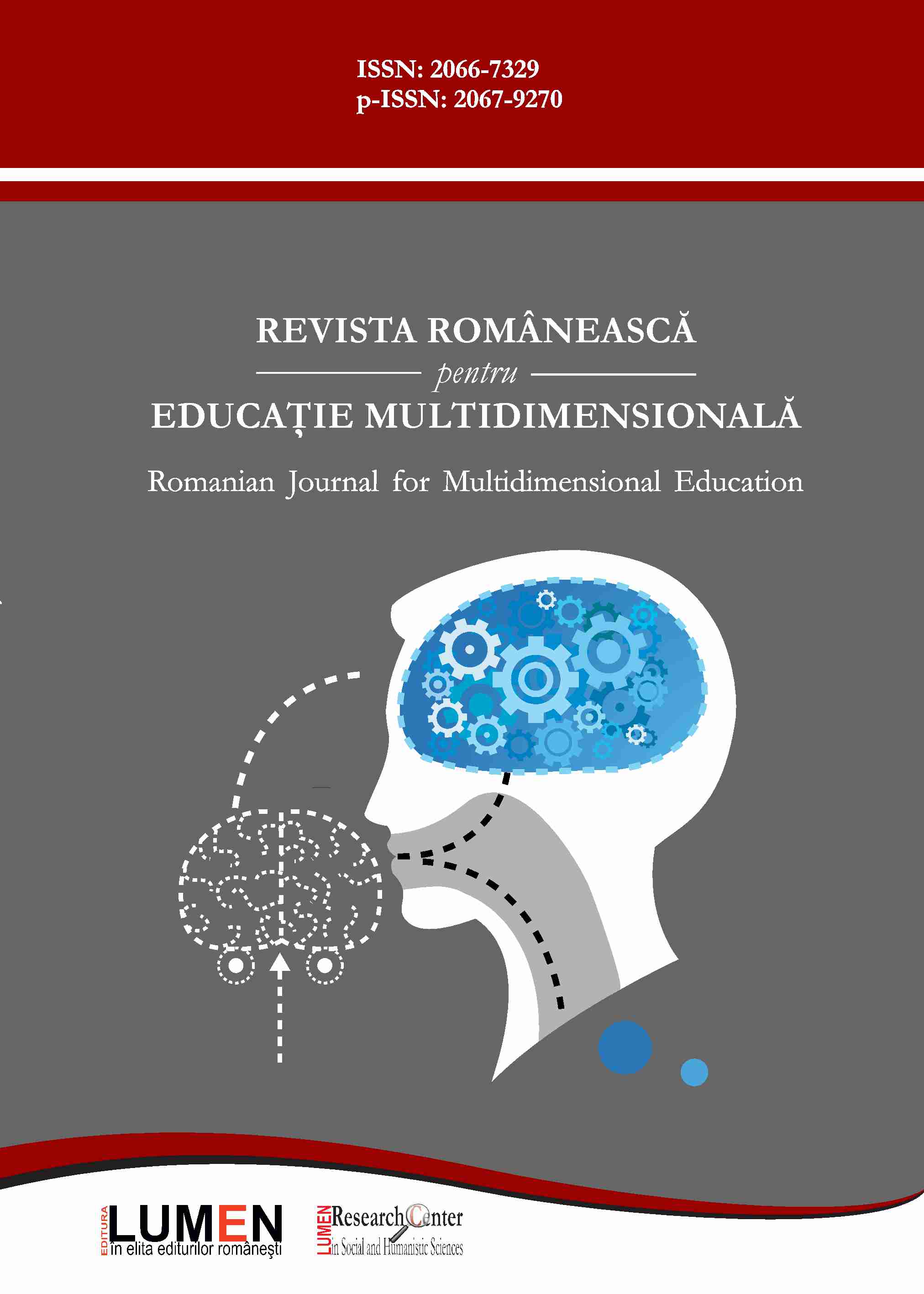
In the current economic context of the energy crisis caused by global warming, the conflict between Russia and Ukraine, and the increased prices for fuel and gas, new requirements are imposed on the educational system. International energetic trade, the use of renewable sources, energy saving, and energy efficiency have become common terms in education since childhood. Energy education should be based on new concepts, new rules, and trends, linked to EU regulations, and rapidly implemented at the national level. The requirements for each level of education, together with related projects developed in the EU states and Romania are presented separately. The new approaches to teaching energy management in secondary schools and universities are detailed separately. The main steps, directions, and recommendations of the implementation plan are mentioned both for primary and secondary schools and high schools and universities. The paper ends with some conclusions as necessary and future action steps and with some recommendations.
More...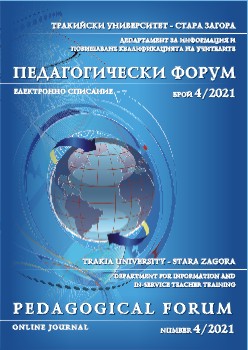
The problem situation is one of the ways to form general learning skills in the study of natural sciences. It provides an opportunity to apply the individual approach, choosing a path for making a final decision and full personal development of the student. This article reviews the nature of the problem situation and learning skills, presents a classification of species and offers an example of use in teaching biology and health education - 7th grade to develop the skill of comparison. The article aims to guide teachers in the logical structure for creating a problem situation and the requirements for the content of individual elements. An option for linking it with a specific educational content is also shown.
More...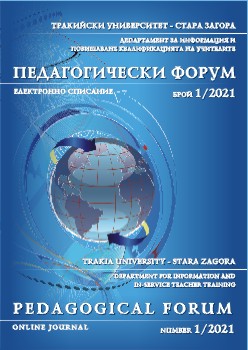
The current article deals with some of the understandings about the very essence of the studying situation, a certain number of the most frequently used types of situations in natural science training. Hereinafter one can find the description of various ways of studying situation creation and the basic methodological requirements thereto. Further, there are exemplary situations given, consequence of actions for transforming of a certain studying task into studying situation. One can also find a variant for the development of the studying situation on different cognitive levels. The very manner of the presentation of the examples given, allows teachers to reformulate the studying situation in such a way so that it to be suitable for various age groups and students with various cognitive capacities and interests.
More...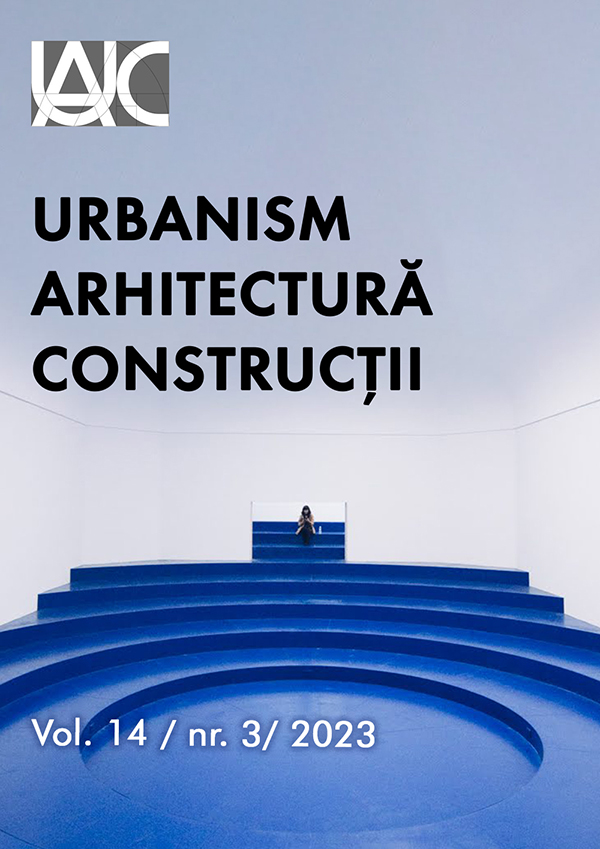
The rate of global urbanization is constantly increasing. As a result of the massive population growth, there is an increasing demand for further urban development, especially in developing regions such as Aswan city. This paper aims to examine the usage official land-use data in predicting future urban growth until 2046, moreover, to define urban driving forces in case study area. This was done using Similarity weighted model, a machine learning based model to simulate future urban growth. The results show that official land-use data produce a slightly better results’ accuracy than remote sensing sources within small to medium scales. The results although reveal that for study region, urban area is expected to expand to cover an area of almost 4460 Feddan by year 2046. The outcome of this research assesses decision makers to accurately predict future urban sprawl areas using available official land-use data.
More...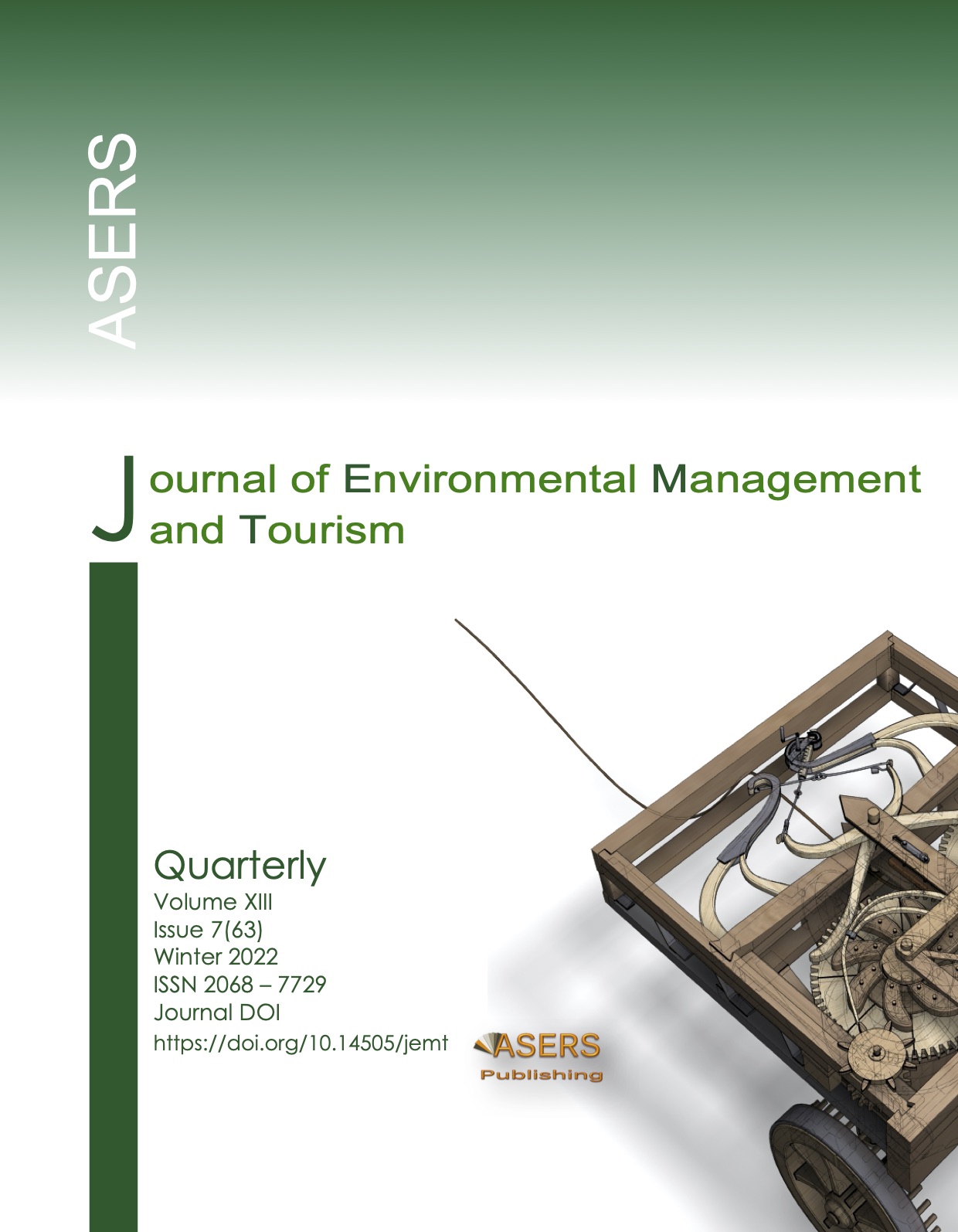
The environment is the vital medium in which man lives, so it has become the focus of human societies' interest to provide a safe environment for individual living, and the rapid growth and expansion of human societies and the prosperity of industries that generate problems in the environment, including pollution. Hence, interest in the problem of environmental pollution began, which created mechanisms to protect the environment, and there became international and regional agreements in this regard, which created interest in the existence of legislative mechanisms regulating the protection of the environment and occupied a high position as the legal means that simplifies protection for the environment and is considered the legal reference in setting general policies to protect the environment from The danger of pollution and the protection of humans and the environment from its harmful effects. Since the administration is considered to have the largest and most important role in protecting the environment, with its general powers granted to it by legislation to preserve the environment and deter violators. This study came to show the means of administrative control in protecting the environment from types of pollution and was limited to the means of administrative control in protecting the environment from pollution.
More...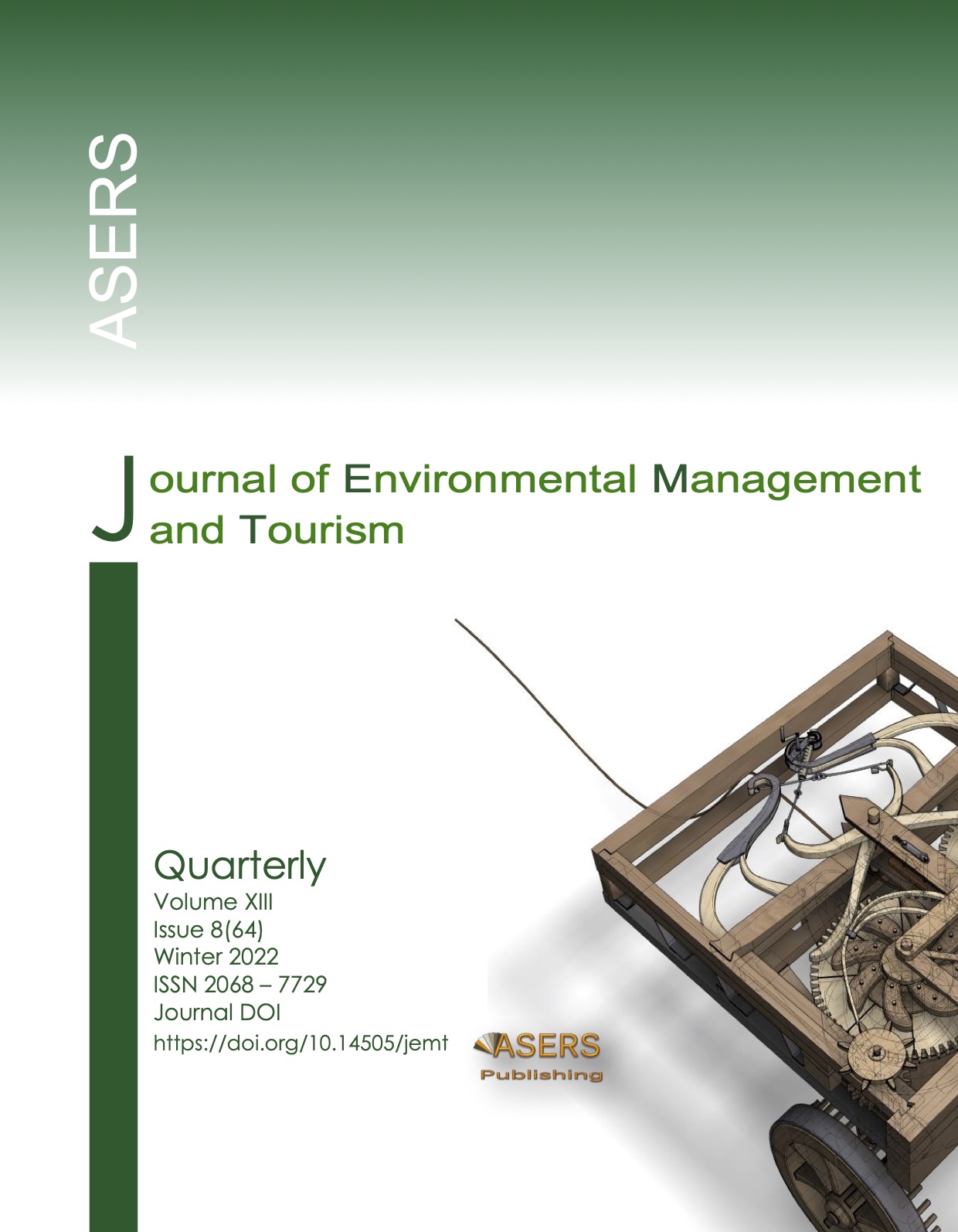
The recent decades demonstrate that tourism is one of the sectors that develop the most consistently and form the backbone of the economies of many developed and developing countries. In this context, one of the main problems hindering the promotion of tourism services is the relatively high probability of force majeure situations. Whereas forced flight cancellations, floods, or hurricanes are local events, the consequences of the COVID-19 pandemic have taken their toll on the entire tourism sector. Today, the tourism sector is one of the most affected by the COVID-19 pandemic. This may provoke further regression given the weak global economy, geopolitical, social, and trade tensions, and uneven performance among major outbound travel markets. At the same time, over many years, tourism has been consistently proving its resilience and ability not only to recover from economic crises but also to contribute to a broader economic and social recovery. The goal of the present study is to develop proposals for the introduction of financial and administrative measures for the development of the tourism industry in the post-pandemic period. Data for the study are collected by means of document analysis and an expert survey. The study concludes that in order to overcome the adverse economic effects of the COVID-19 pandemic in the sphere of tourism, a number of financial and administrative measures need to be developed and implemented at the level of state and local government institutions, particularly in Kazakhstan, to support the development of the tourism sector and stimulate the activities of tourism enterprise. For their part, the authors propose the key measures that should improve the financial sustainability and organization of the tourism sector in Kazakhstan.
More...